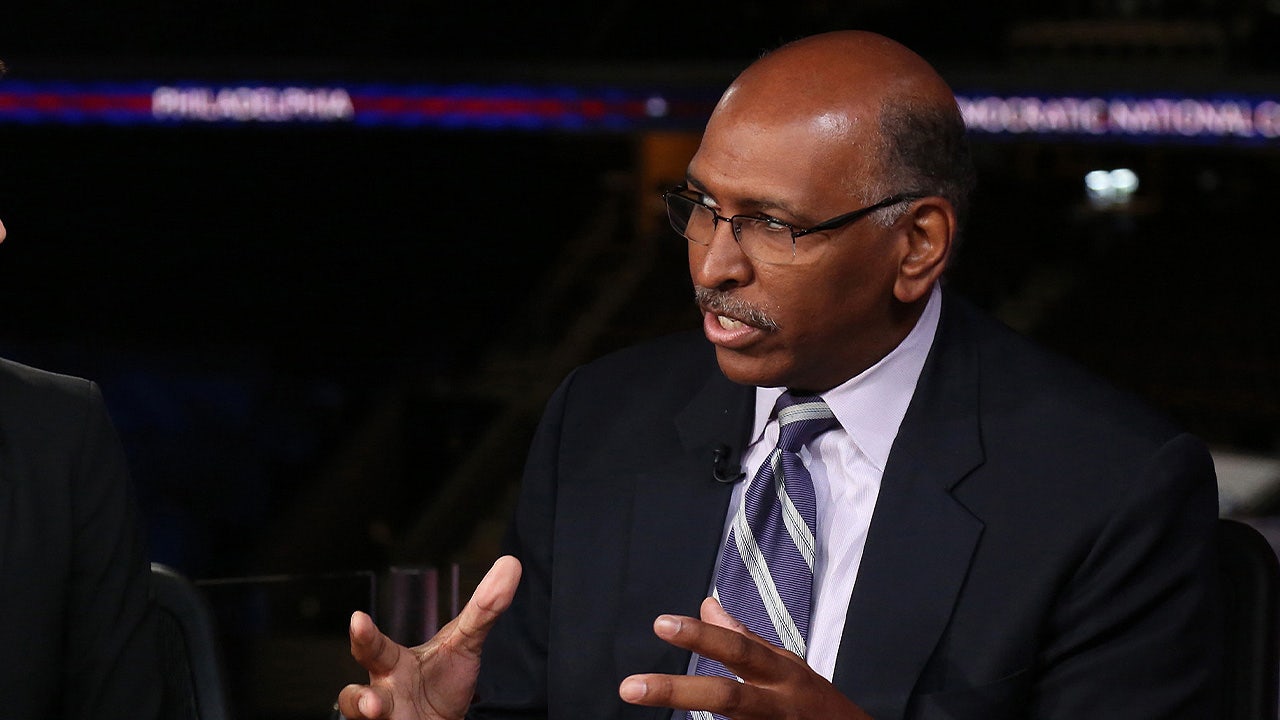President Donald Trump’s multi-nation tour across the Middle East has produced a series of high-level diplomatic developments, culminating in a significant shift in regional alliances and mounting pressure on the Iranian regime.
The trip featured renewed investment deals, defense agreements, and unprecedented talks with regional powers previously outside the U.S. diplomatic sphere.
On Thursday, top Iranian official Ali Shamkhani announced that Tehran is now willing to negotiate directly with the United States.
Trump’s Sovereign Wealth Fund: What Could It Mean For Your Money?
Iran’s proposal would include a commitment never to produce nuclear weapons and to dismantle existing nuclear stockpiles in exchange for lifting U.S. sanctions.
The announcement follows a series of strategic moves by the Trump administration aimed at isolating Iran economically and diplomatically.
“I don’t think that they bent. I think that they folded,” said Rep. Brad Knott, R-N.C., a member of the House Homeland Security Committee, in a statement to Just the News.
“President Trump came in. He immediately put diplomatic pressure. He immediately put financial pressure, and he basically had two barrels loaded, metaphorically, of course, at the Iranian regime, and said, ‘you can roll the dice, but you’re not going to have a country left.’”
This Could Be the Most Important Video Gun Owners Watch All Year
Trump’s efforts to realign U.S. partnerships in the region have focused on deepening the Abraham Accords and expanding cooperation between Arab nations and Israel.
During his visit to Saudi Arabia earlier this week, Trump was received with a full state welcome and addressed the Saudi investment forum, praising the country’s transformation as a “modern miracle the Arabian way.”
The visit yielded several major outcomes, including a $142 billion defense sales agreement and bilateral deals in energy, mining, and security cooperation.
Additionally, a $600 billion investment framework was established to guide projects over the next four years.
Qatar also agreed to purchase $200 billion worth of Boeing jets, providing a significant boost to the U.S. aerospace sector.
President Trump’s first official foreign trip was a HUGE success full of great deals for America!
🇺🇸🇸🇦President Trump announced Saudi Arabia’s $600-billion commitment to invest in the United States – marking a new historic era of partnership between our two countries.
🇺🇸🇶🇦…
— Karoline Leavitt (@PressSec) May 16, 2025
One of the most significant developments came when Trump announced the lifting of sanctions on Syria, signaling a new chapter in U.S.-Syrian relations.
One of his announcements that received a standing ovation was that he would order the lifting of sanctions on Syria “in order to give them a chance at greatness.” He said the original reasons no longer made sense. The Crown Prince and audience stood and applauded. pic.twitter.com/TQOtPxo9iH
— Plein Crazy (@PleinCrazy) May 13, 2025
Trump met privately with Syria’s interim president Ahmed al-Sharaa, the former militant leader who took power following the December 2024 ousting of Bashir al-Assad.
The meeting marked the first direct engagement between a U.S. president and a Syrian leader in 25 years.
Today, President Trump, at the invitation of Crown Prince Mohammed bin Salman, met with Syrian President Ahmad al-Sharaa. President Erdogan of Turkey joined by phone. President Erdogan praised President Trump for lifting sanctions on Syria and committed to working alongside Saudi… pic.twitter.com/0yhyZbQ1o0
— Karoline Leavitt (@PressSec) May 14, 2025
During that meeting, Trump laid out five conditions for continued sanctions relief: Syria must recognize Israel by joining the Abraham Accords, expel foreign terrorists, deport Palestinian terror actors, assist in preventing an ISIS resurgence, and assume responsibility for ISIS detention facilities in the northeast.
Trump also extended an overture to Lebanon, stating that the U.S. is prepared to support the country’s new leadership in moving away from Iranian influence.
Lebanon’s new president, General Joseph Aoun, was installed on January 9, 2025, following the collapse of Hezbollah’s leadership structure and military defeats.
“Lebanon, which has been endlessly victimized by Hezbollah and their sponsor, Iran, [now has] a new president and prime minister [who have] brought the first real chance in decades for a more productive partnership with the United States,” Trump told attendees at the summit.
On regional stability, Trump noted progress with Yemen’s Houthis, who, in a ceasefire brokered by Oman, agreed to stop targeting commercial ships in the Red Sea.
As a result, Trump announced a suspension of the U.S. bombing campaign in Yemen.
Dr. Walid Phares, a former Middle East advisor to Trump, said the diplomatic breakthrough signals growing pressure on Tehran.
“When he [Trump] has Saudi Arabia, Bahrain, UAE, Qatar and obviously other nations who deal with Iran, who are afraid of Iran as a regime… that’s the pressure,” said Phares.
Rep. Marlin Stutzman, R-Ind., told Just The News, No Noise that the moment is a “once in a generation” opportunity to counter Iran’s regional influence.
“President al-Sharaa from Syria… said that he had pushed out Hezbollah, and also pushed out the Iranians out of Syria, and Lebanon seems to be on a good track.”
While a potential deal with Iran is now being publicly discussed, Rep. Knott emphasized the need for caution.
“We must trust and verify,” Knott said.
“But again, I’m very encouraged that the Iranian people and the Iranian government especially seem to be coming around and willing to disembark on this dangerous path.”
With key diplomatic milestones and major investment commitments, Trump’s Middle East tour has redefined regional dynamics and significantly increased pressure on the Iranian regime to change course.
Connect with Vetted Off-Duty Cops to Instantly Fulfill Your Security Needs
Read the full article here


![Trump’s Middle East Strategy Paying Off—Even Iran Wants a Deal [WATCH] Trump’s Middle East Strategy Paying Off—Even Iran Wants a Deal [WATCH]](https://www.lifezette.com/wp-content/uploads/2024/09/2024.09.13-03.32-lifezette-66e45afb64f78.jpg)




![Wild Brawl Breaks Out at Bass Pro Grand Opening in Odessa, Texas [WATCH] Wild Brawl Breaks Out at Bass Pro Grand Opening in Odessa, Texas [WATCH]](https://www.rvmnews.com/wp-content/uploads/2025/07/2025.07.30-09.29-rvmnews-688a8eb885f68.jpg)




